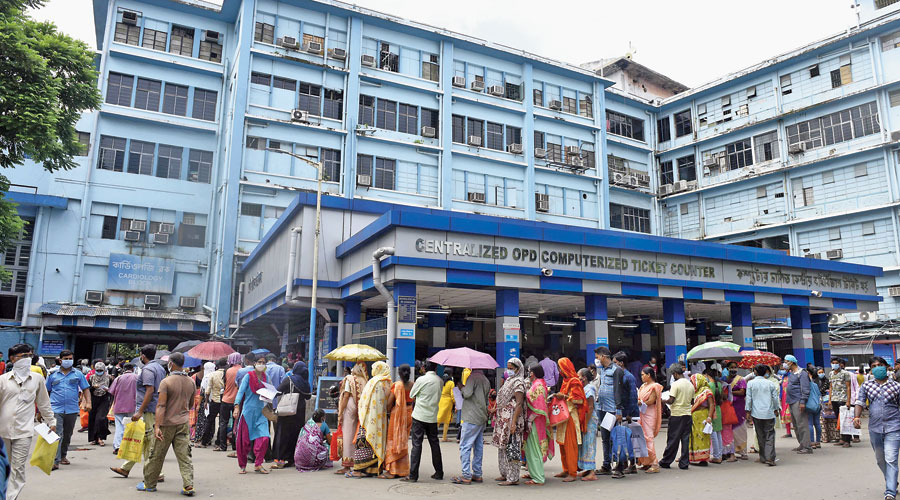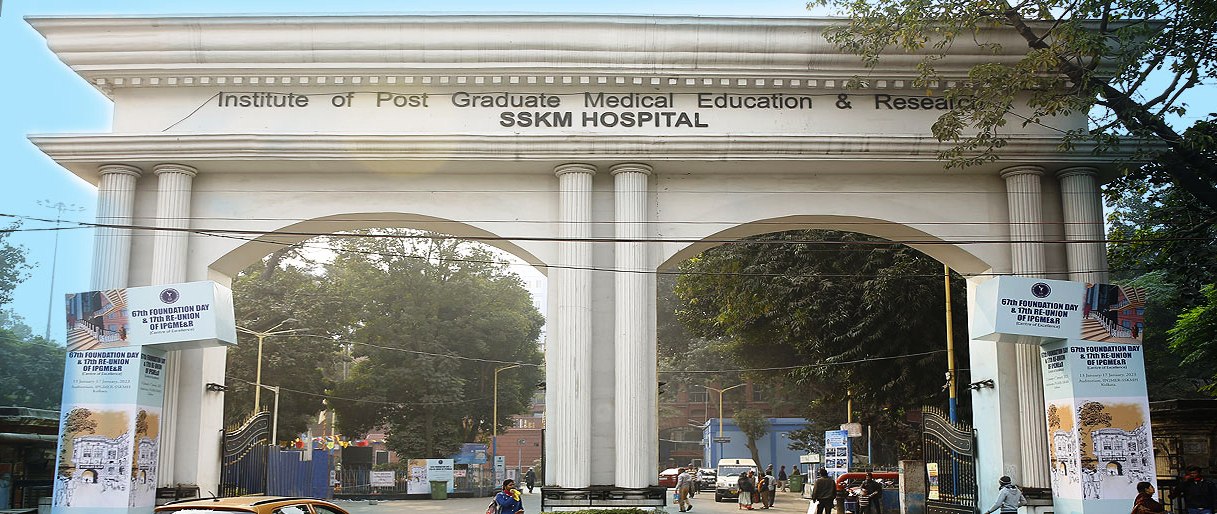Cardiac Surgeon
- 9th August, 2025
- 0 Comments
- 110
- Healthcare
Cardiac Surgeons in Kolkata: The Lifesavers of the City’s Heart
Cardiac surgery is one of the most critical branches of medical science, involving complex procedures to treat heart diseases. Kolkata, known for its rich cultural heritage and medical excellence, is home to some of the finest cardiac surgeons in India. With world-class hospitals, state-of-the-art technology, and highly experienced professionals, Kolkata has become a trusted destination for heart surgeries.
In this blog, we’ll explore the world of cardiac surgeons in Kolkata, who they are, what they do, where to find them, and how to choose the right one for your needs.
💡 What is a Cardiac Surgeon?
A cardiac surgeon is a specialized doctor who performs surgeries on the heart and major blood vessels. Their work includes:
-
Coronary artery bypass grafting (CABG)
-
Heart valve repair or replacement
-
Aortic surgery
-
Heart transplants
-
Congenital heart defect repairs
They often work closely with cardiologists (who diagnose and treat heart diseases medically) but are responsible for surgical intervention when medication is not enough.
🏥 Top Hospitals for Cardiac Surgery in Kolkata
Here are the leading hospitals in Kolkata offering advanced cardiac surgery services:
1. BM Birla Heart Research Centre
-
India’s first exclusive cardiac care hospital
-
Offers all kinds of heart surgeries including bypass, valve, and pediatric surgeries
-
NABH-accredited
-
Renowned for its minimally invasive and robotic surgeries
2. Apollo Gleneagles Hospitals
-
International standards in cardiac surgery
-
High success rate in bypass and complex valve surgeries
-
Equipped with hybrid cath labs and cardiac ICU
3. AMRI Hospitals, Dhakuria & Salt Lake
-
Advanced cardiac surgery department
-
Offers both open-heart and minimally invasive procedures
-
Known for post-operative care and affordable packages
4. Rabindranath Tagore International Institute of Cardiac Sciences (RTIICS)
-
A flagship hospital under Narayana Health
-
High-end cardiac care for adults and children
-
Famous for its cardiac transplant program
5. Fortis Hospital, Anandapur
-
Offers complex cardiac surgeries with cutting-edge technology
-
Renowned for coronary bypass and pediatric heart surgeries
-
Excellent ICU and rehabilitation services
👨⚕️ Leading Cardiac Surgeons in Kolkata
Kolkata is home to several celebrated cardiac surgeons. Some of the most reputed names include:
1. Dr. Kunal Sarkar
-
Senior Vice Chairman, Medica Superspecialty Hospital
-
Over 30,000 successful heart surgeries
-
Specializes in coronary bypass, valve repair, and robotic heart surgery
-
Known for awareness initiatives and cardiac wellness campaigns
2. Dr. Rabin Chakraborty
-
Consultant Cardiologist & Electrophysiologist, Medica & Apollo
-
Famous for non-invasive cardiac interventions and pacemaker implantation
3. Dr. Saurabh Dey
-
Senior Cardiothoracic Surgeon, Fortis Hospital
-
Specializes in valve surgeries and beating heart surgeries
4. Dr. Manoj Daga
-
Renowned cardiothoracic and vascular surgeon (CTVS)
-
Offers advanced aortic aneurysm repair and complex cardiac procedures
5. Dr. Tapas Raychaudhury
-
Associated with BM Birla Heart Research Centre
-
Specializes in pediatric cardiac surgeries and congenital heart defects
⚠️ Note: Always verify a surgeon's credentials, experience, and patient reviews before finalizing.
🛠️ Types of Cardiac Surgeries Performed
Cardiac surgeons in Kolkata offer a wide range of procedures:
-
Coronary Artery Bypass Grafting (CABG)
Bypass blocked arteries to restore blood flow to the heart. -
Valve Repair or Replacement
Fix or replace damaged heart valves using tissue or mechanical substitutes. -
Aneurysm Repair
Repair bulging or weakened areas in the aorta. -
Congenital Heart Defect Surgery
Correct structural defects present from birth, especially in infants and children. -
Heart Transplant
Rare but performed at select hospitals like RTIICS and Medica. -
Minimally Invasive and Robotic Surgery
Advanced surgeries performed with smaller incisions for faster recovery.
🤖 Robotic and Minimally Invasive Heart Surgery
Hospitals like Medica Superspecialty and BM Birla Heart Research Centre have introduced robotic-assisted surgeries for cardiac care. These surgeries:
-
Use precision instruments controlled by surgeons
-
Cause less trauma and scarring
-
Lead to quicker recovery and fewer complications
Dr. Kunal Sarkar and Dr. Tapas Raychaudhury are pioneers in minimally invasive cardiac surgery in Eastern India.
💰 Cost of Cardiac Surgery in Kolkata
The cost of cardiac surgery depends on the complexity of the procedure, hospital, and surgeon's experience. Here's an average estimate:
| Type of Surgery | Approximate Cost (INR) |
|---|---|
| Coronary Bypass (CABG) | ₹2.5 – ₹4.5 lakhs |
| Valve Replacement | ₹2.5 – ₹5 lakhs |
| Pediatric Cardiac Surgery | ₹2 – ₹6 lakhs |
| Robotic Surgery | ₹5 – ₹9 lakhs |
| Heart Transplant (Rare Cases) | ₹18 – ₹25 lakhs |
Most hospitals offer cashless insurance options and EMI facilities. Patients should always consult financial counselors before undergoing major surgery.
✅ How to Choose the Right Cardiac Surgeon
Here are a few tips to select a cardiac surgeon in Kolkata:
-
✔️ Check qualifications (MCh or DNB in Cardiothoracic Surgery)
-
✔️ Experience in the specific procedure you need
-
✔️ Hospital accreditation and facilities
-
✔️ Patient testimonials and success stories
-
✔️ Post-operative care and follow-up support
❓ Frequently Asked Questions (FAQs)
Q1. Is Kolkata good for heart surgery?
Yes, Kolkata has world-class hospitals and highly skilled cardiac surgeons offering affordable and advanced heart surgery options.
Q2. Can heart surgery be done without opening the chest?
Yes, many hospitals in Kolkata offer minimally invasive and robotic-assisted heart surgeries that do not require full chest opening.
Q3. Are there pediatric heart surgeons in Kolkata?
Yes, hospitals like RTIICS and BM Birla have dedicated pediatric cardiac surgeons for congenital heart disease.
Q4. What is the recovery time after bypass surgery?
It typically takes 6 to 12 weeks to recover fully after CABG, depending on the patient’s health and care.
❤️ Final Thoughts
Cardiac surgery is a life-saving treatment that requires trust, expertise, and advanced technology. Kolkata’s top cardiac surgeons and hospitals bring all of these together under one roof. Whether you're looking for a second opinion, a complex bypass surgery, or cutting-edge robotic heart surgery, the city offers safe, reliable, and compassionate cardiac care.
If you or your loved ones are dealing with heart problems, don’t delay consulting a cardiac expert. Early diagnosis and timely intervention can save lives.
📍Need help connecting with top cardiac surgeons in Kolkata?
Visit mediguides.in or WhatsApp us at 8001700199 for free guidance and booking.







No Comments For Now.